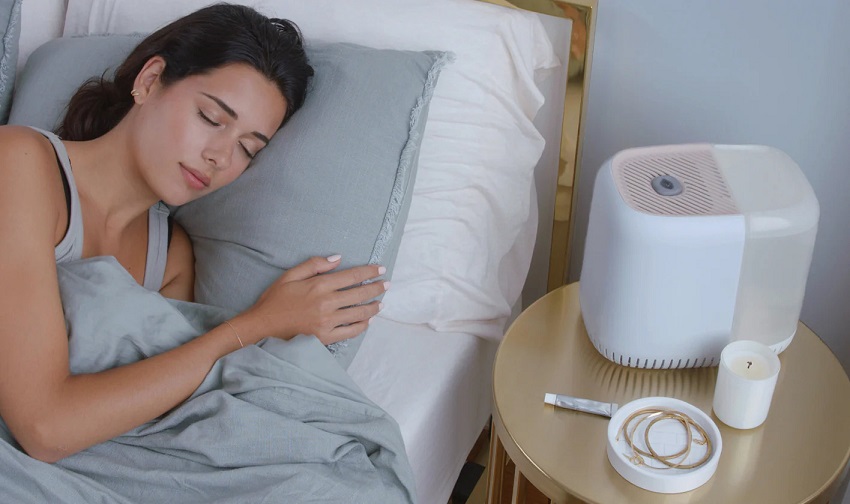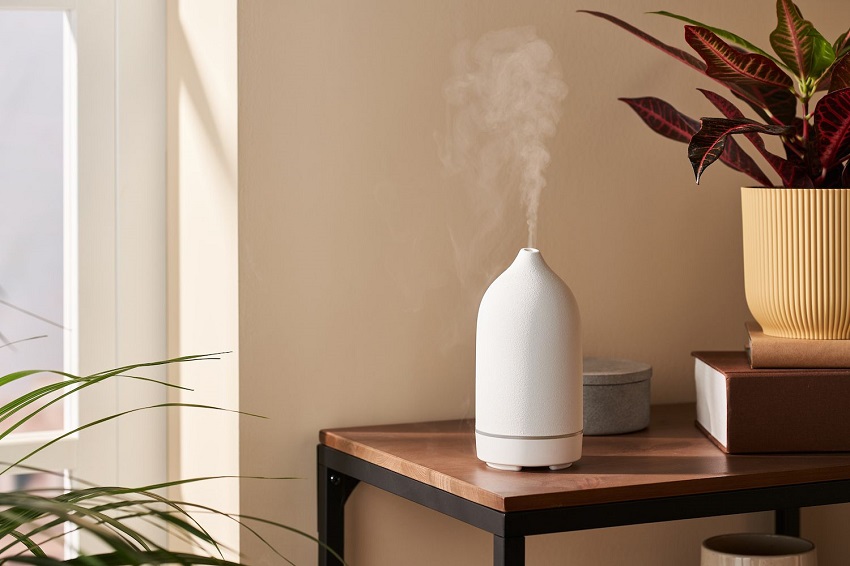
04 Jul What Kind of Humidifier Do I Need for Sleep Apnea?
Finding the right humidifier can significantly improve your sleep quality and overall well-being if you suffer from sleep apnea. Sleep apnea is a sleep disorder characterized by pauses in breathing during sleep, which can lead to disruptive and fragmented sleep patterns. Using a humidifier can help alleviate the symptoms of sleep apnea by relieving the respiratory system and reducing discomfort caused by dry air. In this article, we will explore the different types of humidifiers suitable for sleep apnea, discuss popular brands and models, and provide relevant research data to guide your decision-making process. This content is provided by https://celb.org/
Understanding Sleep Apnea and its Impact on Breathing
Sleep apnea occurs when the muscles at the back of the throat fail to keep the airway open, causing breathing interruptions. These pauses can last for a few seconds to minutes, leading to decreased blood oxygen levels and frequent awakening during sleep. If left untreated, the condition can result in daytime fatigue, headaches, and even serious health complications.
The Importance of Humidifiers for Sleep Apnea
Humidifiers add moisture to the air, increasing humidity levels in your bedroom. For individuals with sleep apnea, using a humidifier can provide several benefits:
Relieving Nasal Congestion and Dryness
Sleep apnea sufferers often experience nasal congestion and dryness, exacerbating breathing difficulties. A humidifier helps alleviate these symptoms by adding moisture to the air, promoting better nasal airflow and reducing discomfort. Explore humidifier for sleep apnea.
Enhancing Respiratory Function
Dry air can irritate the airways and make breathing more challenging for individuals with sleep apnea. By introducing moisture into the environment, a humidifier can improve respiratory function, making it easier to breathe during sleep.
Reducing Snoring
Snoring is a common symptom of sleep apnea and can disrupt both the individual with sleep apnea and their partner’s sleep. A humidifier can help reduce snoring by keeping the airways moist and minimizing the vibrations that cause snoring sounds.
Types of Humidifiers for Sleep Apnea
When selecting a humidifier for sleep apnea, choosing the type that best suits your needs is important. Here are the most common types of humidifiers available:
Cool Mist Humidifiers
Cool mist humidifiers release a cool mist into the air, making them suitable for year-round use. They are generally safer for households with children and pets, as they do not involve hot water or heating elements. Cool mist humidifiers can help relieve congestion and soothe dryness, making them a popular choice for individuals with sleep apnea.
Warm Mist Humidifiers
Warm mist humidifiers produce warm steam by heating water, which can help alleviate nasal congestion and soothe irritated airways. However, it’s important to note that warm mist humidifiers require regular cleaning and may not be suitable for households with children due to the risk of accidental burns.
Ultrasonic Humidifiers
Ultrasonic humidifiers use ultrasonic vibrations to break water into tiny particles, creating a fine mist. They are generally quiet, energy-efficient, and provide excellent moisture output. Ultrasonic humidifiers are available in cool mist and warm mist variations, catering to individual preferences.
Whole-House Humidifiers
Whole-house humidifiers are installed directly into your HVAC system, ensuring consistent humidity levels throughout your home. While they may require professional installation, they offer convenience and efficiency, especially for individuals with larger living spaces.
Popular Brands and Models
When choosing a humidifier for sleep apnea, it’s important to consider reputable brands known for their quality and performance. Here are a few popular brands and models to consider:
Philips Respironics DreamStation Heated Humidifier
The Philips Respironics DreamStation Heated Humidifier is a popular choice among individuals with sleep apnea. It offers precise humidity control, adjustable heat settings, and an easy-to-use interface.
Honeywell HCM350W Germ-Free Cool Mist Humidifier
The Honeywell HCM350W Germ-Free Cool Mist Humidifier is a highly regarded cool mist humidifier incorporating UV technology to kill up to 99.9% of bacteria in the water. It features a large water tank and adjustable humidity settings.
Vicks Warm Mist Humidifier
The Vicks Warm Mist Humidifier is a reliable warm mist option that provides soothing relief for sleep apnea symptoms. It includes a medicine cup for adding inhalants and operates quietly.
Several studies have examined the effects of humidifiers on sleep apnea and related conditions. According to a study published in the Journal of Clinical Sleep Medicine, using a humidifier can significantly reduce the severity of sleep apnea symptoms and improve sleep quality for individuals with obstructive sleep apnea (OSA). Another study published in the Annals of Otology, Rhinology, and Laryngology found that using humidifiers improved nasal patency and reduced snoring in patients with OSA.
Conclusion
Choosing the right humidifier is crucial for individuals with sleep apnea seeking relief from symptoms and improved sleep quality. By understanding the different types of humidifiers available, considering popular brands and models, and reviewing relevant research data, you can make an informed decision that suits your needs. Remember to consult with your healthcare professional for personalized advice and recommendations.
FAQs
Q1: Can a humidifier cure sleep apnea?
A1: No, a humidifier cannot cure sleep apnea. However, it can alleviate symptoms and improve sleep quality by relieving the respiratory system.
Q2: How often should I clean my humidifier?
A2: It is recommended to clean your humidifier regularly, following the manufacturer’s instructions. This helps prevent the buildup of bacteria and mold.
Q3: Can I use essential oils in my humidifier for sleep apnea?
A3: It is generally not recommended to use essential oils in humidifiers, as they can damage the device and potentially irritate the airways. Consult with your healthcare professional for guidance.
Q4: Are warm mist humidifiers better than cool mist humidifiers for sleep apnea?
A4: Both warm mist and cool mist humidifiers can effectively treat sleep apnea. The choice depends on personal preference and individual needs.
Q5: Can I use a humidifier with a CPAP machine for sleep apnea?
A5: Yes, using a humidifier alongside a CPAP (Continuous Positive Airway Pressure) machine can provide additional moisture and enhance comfort during sleep.

No Comments